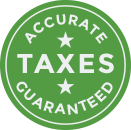How do I calculate my Self-Employment Taxes?
The Self-Employment Taxes that most members of the Clergy must pay quarterly are actually made up of two different taxes: Old-age, survivors and disability insurance (also known as “OASDI” or the more commonly used term “Social Security”) Medicare taxes OASDI taxes are calculated as 12.4% of your income. The maximum wage limit on OASDI is…
Where’s My 1040 Refund?
While IRS issues the majority of taxpayer refunds in less than 21 days for electronically filed returns, in some cases return processing can be delayed. If it has been more than 21 days since your tax preparer electronically filed your return, or 6 or more weeks since you mailed in a paper copy of your…
How do we pay nonexempt staff for after-hours communications?
Generally, non-exempt employees are paid hourly. We recommend instructing non-exempt employees to track all their time worked and prohibit working off the clock. Churches may use any timekeeping method they choose as long as it’s accurate and capturing all the required information (see below). For example, you may use a time clock, have a timekeeper keep track…
What are Self-Employment Taxes?
If you are new to Ministry, it’s possible that you’ve never heard of self-employment taxes before, much less paid them. One common mistake for new Ministers is filing the 1040 without taking self-employment taxes into account, which can result in a big bill later when your 1040 return gets corrected by IRS. When you work…
The Decision: Clergy or Non-Clergy
When a church hires an employee, one of the initial decisions that must be made is whether to treat the worker as clergy, non-clergy employee or contractor. This decision may seem insignificant, but it has huge implications when it comes to payroll. Ministers have what is commonly referred to as “dual tax status.” For federal…
Can we pay for gym membership for church staff?
You can, but it would need to be considered as extra taxable income. Gym membership dues are considered a personal expense. There is no tax law that excludes employee or employer paid third-party membership dues from taxable income. The only time the value of membership dues are excludable from income is if the employer provides…
Do I still need to track Medical Expenses?
In 2018, there were two hurdles to claiming a Medical Expense Deduction. First, you had to spend more than 7.5% of your adjusted gross income on medical expenses. If you had a combined income of $100,000, you would first have to spend $7,500 on medical before you could claim any expenses. And that’s unreimbursed medical…
Do I still need to track Housing Expenses?
A lot of people used the Standard Deduction in 2018, rather than Itemizing. You may also wonder, as a member of the clergy, “Does take the standard deduction mean we don’t have to track housing expenses in 2019?” Unfortunately, the answer is no. Even if you used the Standard Deduction, you must still keep track…
I inherited a house. Do I have to pay the estate tax?
In most cases, the answer is no. While you may hear complaints about the “estate tax”, most Americans will never pay it. In 2019, the total assets of an estate have to be over $11,400,000 dollars before any estate tax is owed. Eleven Million Dollars! There is some confusion because there is an “estate tax”…
How Long Do I Have to Keep This Tax Stuff?
When you file your taxes, you should be retaining a copy of the tax return and all of the supporting documents to prove your income and expenses. But after five or ten years of filing tax returns, the amount of paper you have to keep can add up. Add all of the other important documents…






